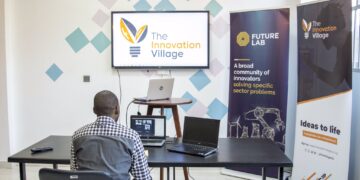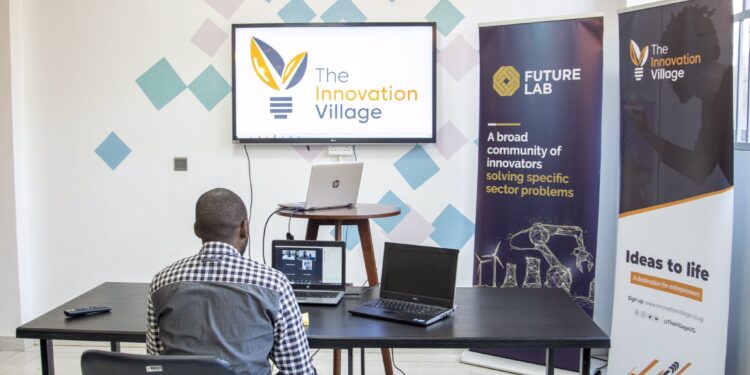The Innovation Village is a destination for innovators and aspiring entrepreneurs to transform their ideas into solutions to Africa’s most pressing challenges.
With its head offices at Ntinda Complex in Ntinda, Kampala, Innovation Village creates an environment where startups grow in confidence and capability scaling from promising technology into fully established sustainable businesses.
“Our aspiration is to see young people’s ideas that could transform society come to life and make a remarkable impact,” says Sharon Kakai, the Lead of Marketing and Communications.
She recently spoke with SoftPower News journalist, Rogers Atukunda.
What is The Innovation Village?
We are where innovators and entrepreneurs solving the most pressing challenges within our communities come to build and scale solutions. We do this by cultivating an enabling environment for entrepreneurs to thrive, supporting them with tools, expertise, capital, and community to build world-class technology-enabled products and ventures.
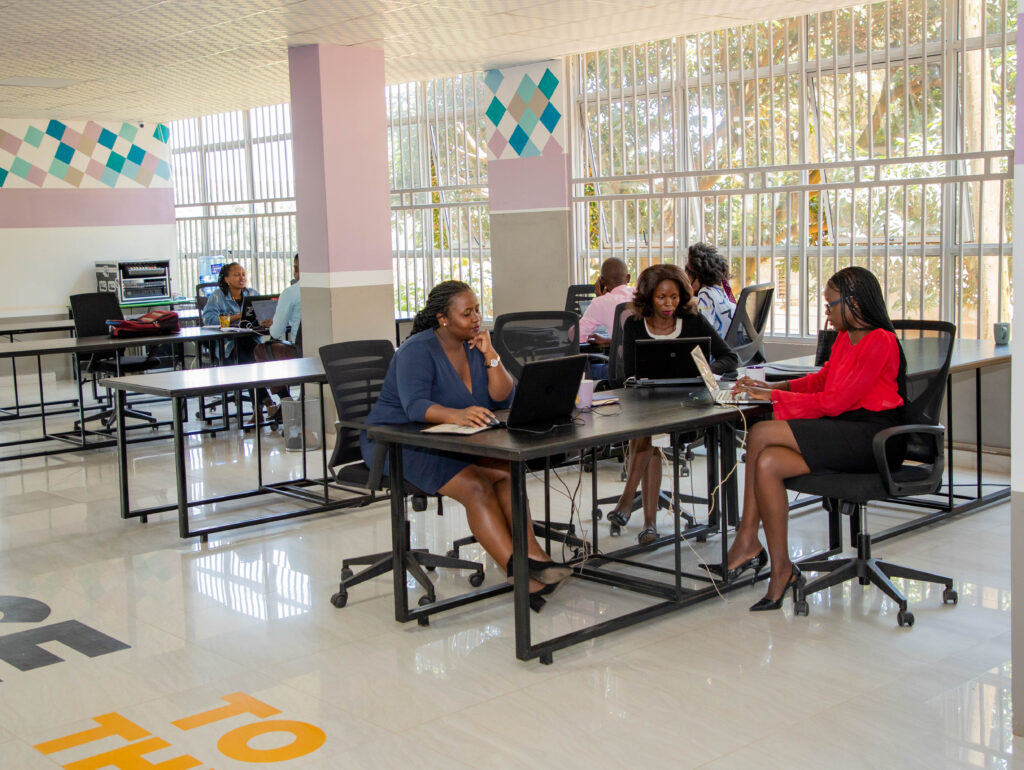
Through our spaces across Uganda in Gulu, Mbarara, Jinja and Kampala, Innovation Village fuels the growth of game-changing founders, start-ups and enterprises that positively transform our communities and economies.
Our focus is on nurturing technology-enabled solutions and moving our ecosystem forward towards unlocking the many opportunities availed in the 4th Industrial Revolution.
Who came up with this idea?
Our Founder Japheth Kawanguzi first got the inspiration for Innovation Village back in mid-2015. Japheth was and continues to be inspired by the minds of young people and their brilliant ideas.
He noted that whereas several of these aspiring entrepreneurs at the time had such good concepts, they were being failed by the ability to turn them into scalable, sustainable businesses executed well enough to attract capital and talent, and capable of navigating the many constraints that exist across the start-up ecosystem in Uganda.
The Innovation Village was therefore set up to support such entrepreneurs, regardless of the stage of implementing their ideas, to get the appropriate support to catapult them to their next milestone and beyond.
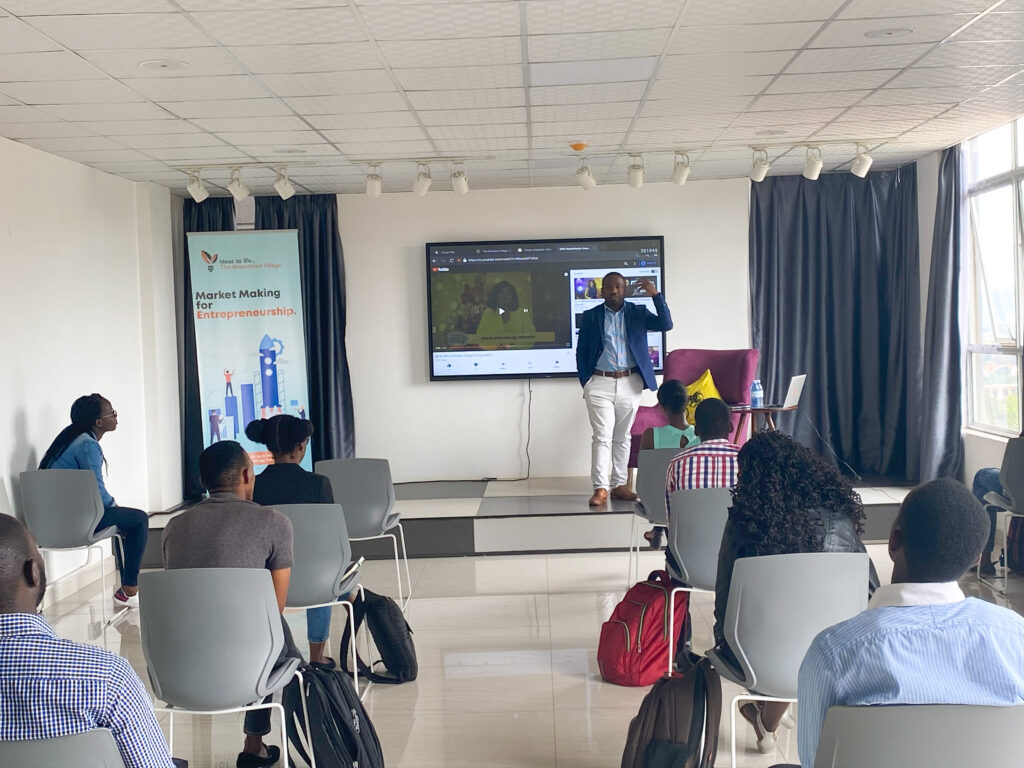
Who do you regard as an innovator?
For us, an innovator is someone who thinks differently. Someone who solutions a problem and tries to solve it where others or established organisations have failed or are not moving as fast or efficiently. This is regardless of whether they are using technology in their approach, hence our work with the creative and cottage sector through our affiliate MoTIV.
You talked of start-ups, what is a start-up?
Whereas there is no standard definition anywhere in the world, a Start-up is generally typically an innovation-driven enterprise using technology to solve a key problem at scale using one or more novel approaches, and fast.
That said, various additional criteria such as whether they are or aren’t making revenue, whether they have raised funding and to what extent if they have, and so on, further break down start-ups across their lifecycle which leads to additional classifications of start-ups into things like “pre-revenue”, “post-revenue”, “seed-stage”, “growth-stage”, etc. start-ups.
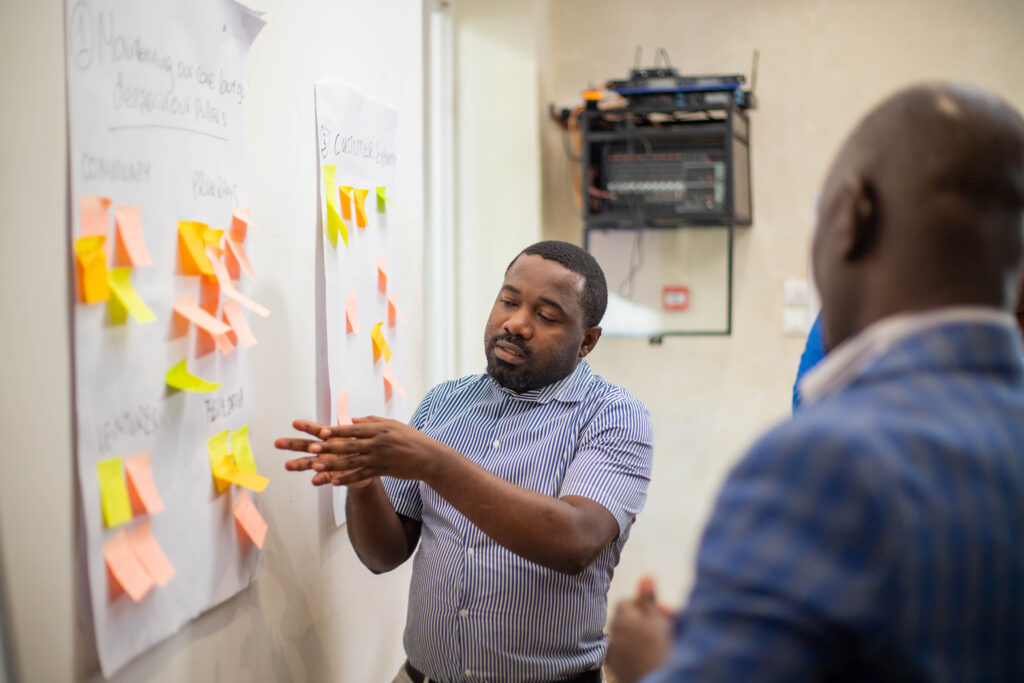
That said, we are part of and are avid supporters of the Start-up Act initiative being championed by various actors such as the Ministry of Trade, industry and cooperatives, Mastercard Foundation, Private Sector Foundation Uganda (PSFU), Africa Innovation Institute and Start-up Uganda. In addition to harmonizing on a definition of a Start-up in the Ugandan context, this initiative aims to define a broad range of support such entities can receive.
What kind of companies do you consider?
We support a broad range of start-ups ranging from those at the idea stage through to those that have several hundred thousand monthly users or revenue.
Ultimately because a lot of our support is channelled through Innovation Programs that we design and implement with partners, the criteria we mutually agree on tend to determine who is supported given the resource constraints per program.
What is common across them however is a focus on solutions across 12 key sectors such as Agriculture, Education, Micro Retail, Energy, Financial Services, and Insurance, for example, and across multisectoral thematic areas that encourage interdisciplinary solution development. Our thematic focus is on Digital Inclusion, Automating Trust, and Climate Action, all crucial to unlocking Uganda’s potential.
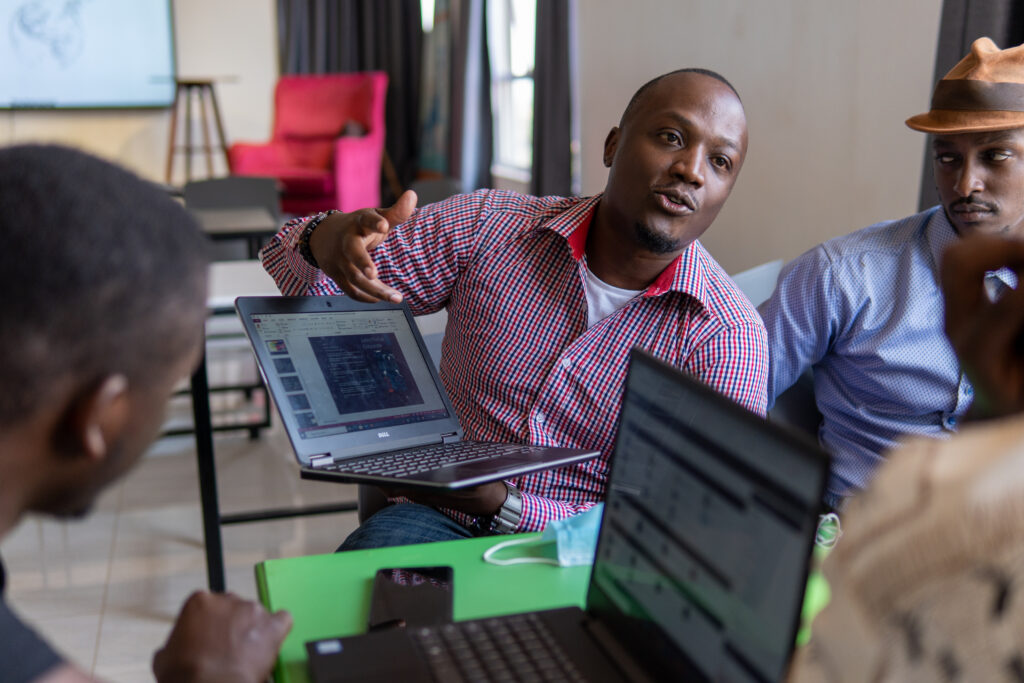
For instance, we partnered with the Insurance Regulatory Authority of Uganda to develop IRA InsureX – a program for those innovating in insurance to create solutions that boost resilience across households and enterprises. With insurance penetration in Uganda at below 1%, the idea is to build a solution that catalyses penetration, towards doubling it by 2025. Together with IRA, the program prepares insurance innovators to identify, build and refine solutions ahead of joining the Regulatory Sandbox environment which gives them the ability to pilot such solutions in public. We support these innovators not only in navigating the Sandbox residency but also to prepare to scale upon graduation. Such a program is well suited for start-ups that are already in the market, with at least 5,000 Active Users or $5,000 in Monthly Recurring revenue, which is not to say that we do not have initiatives for those much earlier or much further along than this.
How do you support these entrepreneurs?
We focus on underlying systemic challenges that create and sustain demand for their solutions, encouraging interdisciplinary approaches through our thematic innovation clusters, and channelling appropriate support to find, refine, build, and scale appropriate interventions.
We do this through a number of interventions including Innovation Programs like the Digital Economy Program implemented in partnership with Mastercard Foundation and others to provide a catalytic blend of digital infrastructure tools, skilling, and networks to bring opportunities in the Digital Economy closer to young people, women, and small businesses in digitally excluded communities.
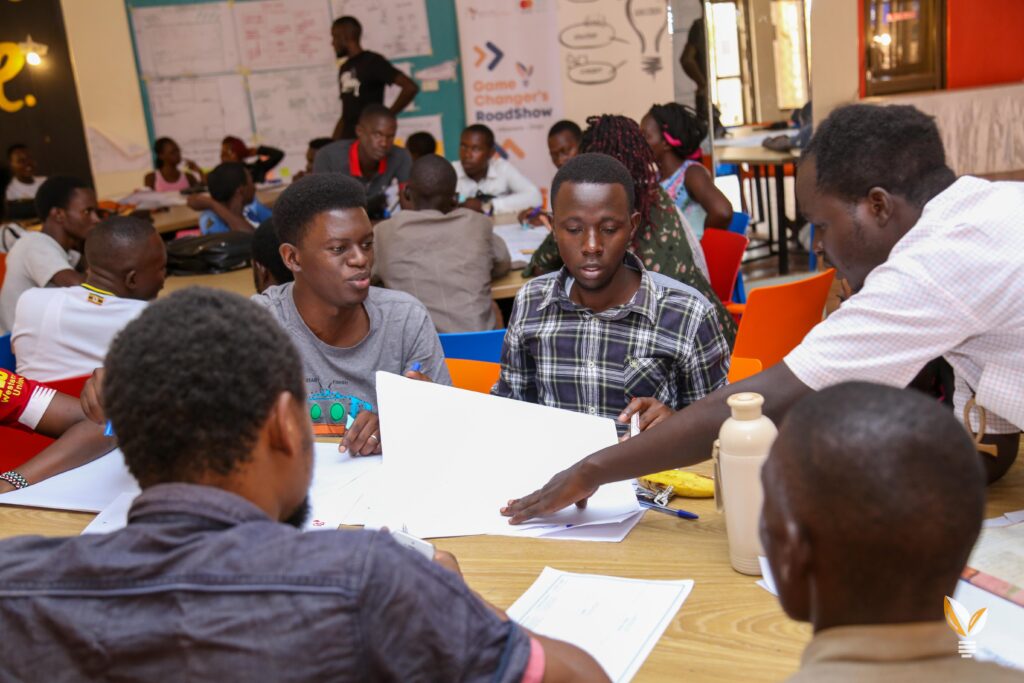
The Digital Economy Program uses a shared digital infrastructure and partnerships to digitize life transactions of digitally excluded communities. The program envisages that as these communities embrace and are onboarded on the platforms the program supports, they will enjoy increased access to essential services, products, markets, funding, and employment across Uganda’s burgeoning Digital Economy.
Tell us more about the Digital Economy Program.
The Digital Economy program is made up of
- Digital Rails – Shared infrastructure anchored in the Community Pass Platform that is aimed at reducing the complexity of reaching digitally excluded communities.
- Partnership Program – A network of Start-up, Corporate and other partners collaboratively reaching digitally excluded communities faster.
- Digital Skilling – Nurturing a pool of stellar technical talent and empowering digitally excluded communities to leverage digital solutions to tap into opportunities in the Digital Economy.
- Agent Network – Utilizing a mixed-use shared digital agent network to provide partners with a more robust, efficient, and affordable way to reach digitally excluded communities.
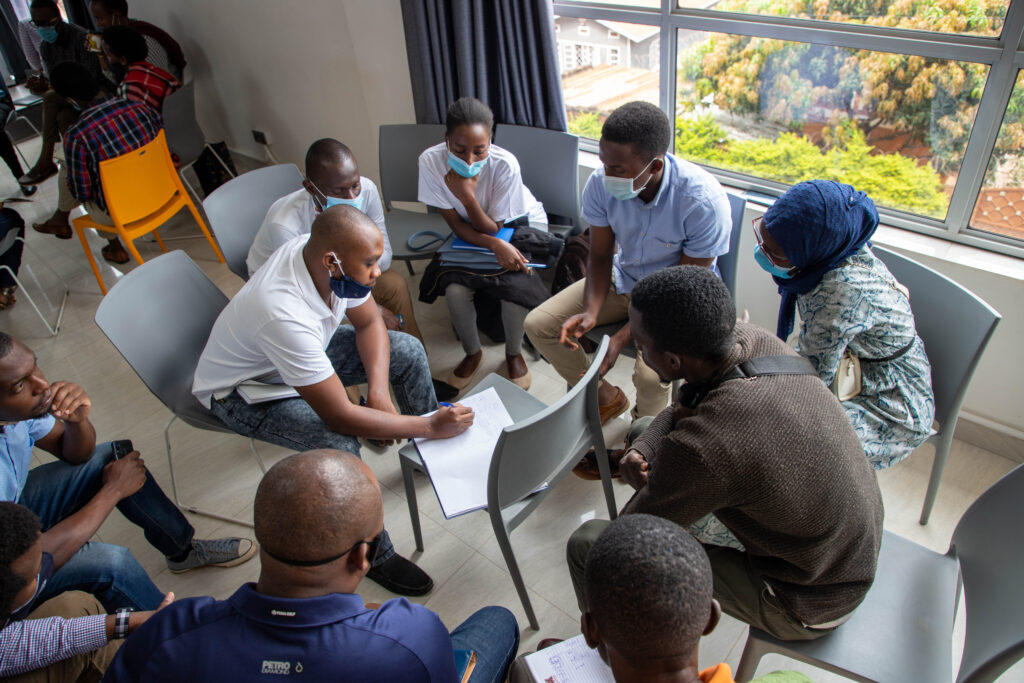
How can an innovator or entrepreneur join The Village?
Our doors are open. An innovator can join The Village through our programs where they meet the respective criteria, by visiting our spaces in Kampala, Mbarara, Jinja and Gulu, or by joining our community via our website at www.innovationvillage.co.ug. We welcome and support a broad range of innovators such as Start-up Founders, Developers, Freelance workers, and so on.
